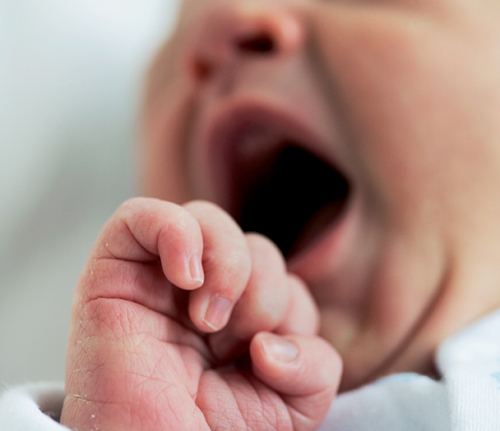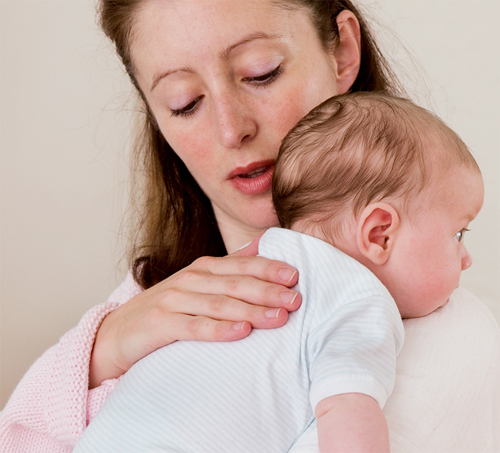You may be feeling anxious about your new responsibilities, but be reassured by the support network around you.
Your baby today
Newborn babies sleep around 16 hours a day, although some sleep
for most of the first few days while others seem awake and fretful. If
your baby is very sleepy, you may need to wake her for feedings, which
should be at least every four hours.

Your ob/gyn
will visit in the hospital today. She will ask how you are managing and
check that you have emergency contact numbers. You may be asked to
watch short films or read brochures about the risks of Shaken Baby
Syndrome and/or Sudden Infant Death Syndrome. A pediatrician will also
examine your baby in the hospital today.
It’s important that you eat a healthy diet and rest during the day whenever possible. Kegel exercises
are vital to strengthen your muscles. If you were given painkillers or
anti-inflammatory medicine, take these as necessary. If you get
visitors, make sure they wash their hands before touching the baby.
Do I need to clean the cord stump before it drops off?
Your baby’s cord stump, which is the end of the umbilical cord, will
shrivel up and fall off naturally around 7–10 days after the birth. Many
parents feel uneasy about touching the stump and are unsure whether or
not to clean it. Some pediatricians recommend swabbing it regularly with
rubbing alcohol but others say to leave it alone. However, if it does
become dirty, clean with soap and water and dry well. If the cord stump
or the surrounding area are sticky, inflamed, or smelly, contact your
doctor for advice. It’s important to keep the cord stump dry. Exposing
it to air at times helps avoid the risk of infection.
While you’re in the
hospital, you may get lots of visitors. And while it’s fun to show off
your beautiful baby to friends and family, make sure that you take time
to sleep, because once you bring your baby home, you won’t have much
opportunity to sleep. Many hospitals let you decide whether the baby
will sleep in the room with you at night or in the nursery. There’s no
wrong decision; do what feels best for you and your baby.
Burping your baby
Burping simply means helping your baby burp after a feeding.
After a feeding, air bubbles in your baby’s stomach need to rise to the
top and you can help this happen by sitting her on your lap or holding
her upright against your shoulder. You don’t need to rub or pat her, but
this often feels right and babies seem to like it! It’s a good idea to
burp half way through a feeding and again at the end, especially for
bottle-fed babies, since air fills up the stomach, slows down the
feeding, and makes a baby more likely to vomit.
Holding your baby upright over your shoulder after a feeding can help your baby burp and therefore ease discomfort.

Easing discomfort
Stitches and hemorrhoids
The following can increase comfort.
When you urinate, pour warm water over the area to ease stinging.
Sit on an inflatable ring.
Apply a cooling gel or ice pack.
Take a warm bath or spray water on your stitches in the shower.